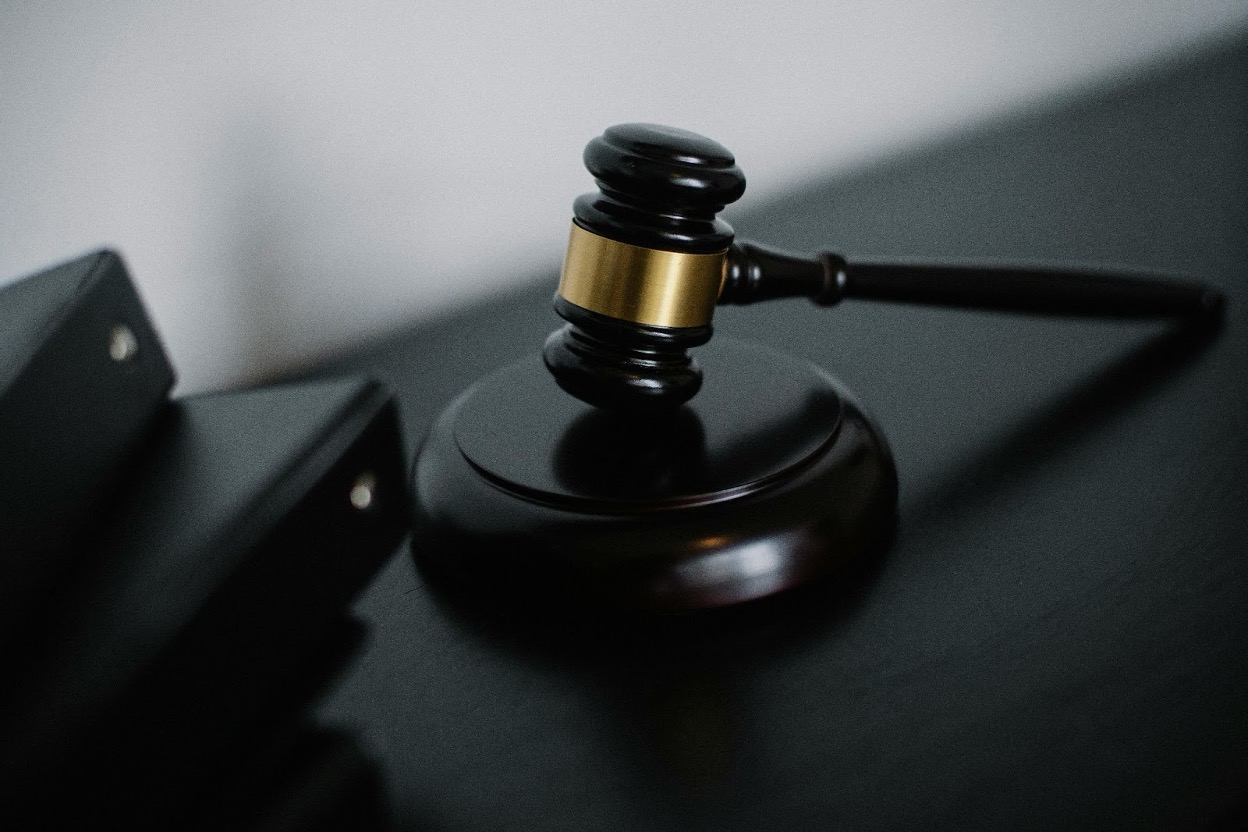Key Takeaways
- You cannot be jailed for simply owing $50k or more in debt, as debtors’ prisons were abolished.
- But ignoring court orders related to your debt can lead to legal consequences, including jail time.
- Unpaid debt can result in bank account garnishment, asset seizure, or property liens if a court judgment is made.
- Debt settlement, consolidation, and professional help can provide effective ways to manage large debts.
- At Debt Redemption Texas Debt Relief, we help Texans resolve debts of $50k or more through tailored debt settlement programs, credit counseling, and our debt negotiation fees are often up to 40% less compared to out-of-state services.
Debt Redemption Texas Debt Relief is a trusted debt relief company in Texas dedicated to helping consumers overcome their financial challenges. We offer personalized solutions including a debt settlement program exclusively offered only to Texans, a debt consolidation loan platform to shop for the best rates, and access to credit counseling solutions via our partners, to help you reduce and manage debt effectively. With a commitment to transparency and customer support, Debt Redemption Texas Debt Relief provides free consultations to guide you towards financial freedom.
As seen on Good Morning Texas, Texas Today, Great Day Houston, Great Day SA, We Are Austin and Daytime
Overview of Debt Collection Laws
Understanding debt collection laws helps you handle interactions with creditors and collectors more confidently. Federal and state laws regulate how debt collectors can approach you and what actions they can take.
Laws Protecting Debtors
- Fair Debt Collection Practices Act (FDCPA): Prohibits debt collectors from using abusive, unfair, or deceptive practices, including harassment, lying about the debt, or threatening jail time.
- State laws: Many states offer additional protections, such as limits on wage garnishment and stricter rules on how debt collectors can contact you.
Creditors’ Rights
Creditors can attempt to collect debts directly or hire collection agencies but must follow the FDCPA and state laws.
Role of Collection Agencies
Collection agencies are third parties hired by creditors to recover unpaid debts. They must follow regulations under the Fair Debt Collection Practices Act (FDCPA) and cannot harass or mislead debtors.
- Phone Calls and Letters: Agencies contact debtors with calls or letters to request payment.
- Payment Plans: Some agencies offer structured repayment plans to encourage debt settlement.
- Credit Reporting: Agencies report unpaid debts to credit bureaus, impacting credit scores.
- Legal Action: If attempts fail, agencies may pursue lawsuits to collect debts through bank account garnishment and levies, following legal procedures.
- Specific Debt Recovery: They recover various debts, including medical bills and overdue credit card payments.
Agencies cannot threaten, harass, or provide false information about legal actions. Consumers have the right to dispute claims and file complaints against improper practices.
Can You Be Arrested for Not Paying Debt?
Debtors’ Prisons in History
Debtors’ prisons, once common, were abolished in the U.S. in the early 19th century. You won’t be jailed just because you owe money, no matter the amount.
Contempt of Court
You can face jail time for contempt of court if you ignore certain orders from the court, such as failure to comply with post judgement interrogatories. This results from legal non-compliance, not the debt itself.
Exceptions to the Rule
Failure to pay child support or alimony, which are legal obligations treated differently under the law, can result in jail time.
Legal Consequences of Ignoring Debt
Ignoring debt can lead to several legal consequences, but arrest is generally not one of them. However, if you ignore court orders or fail to respond to legal actions taken by creditors, you could face serious repercussions. These can include bank account garnishment, liens on your property, or even asset seizure.
Legal Recourse for Unpaid Debts

Civil Lawsuits
- Creditors may file a civil lawsuit against you, resulting in a court judgment stating that you owe the debt.
- This judgment can lead to bank account garnishment or asset seizure.
- Responding to any court summons is crucial to avoid a default judgment, which occurs when you don’t appear in court.
Wage Garnishment
- If a creditor obtains a court judgment, they can request a bank account garnishment order.
- Depending on the size of your debt, your bank account could be emptied and future deposits taken.
Asset Seizure
- Creditors may seize non-exempt assets to satisfy a debt.
- This can include taking money from your bank account or placing a lien on a non-homestead property.
- A lien ensures that if you sell the property, the creditor will be paid from the proceeds before you receive any funds.
How to Handle Large Debts
Contacting Creditors
Contact your creditors and explain your financial situation. Ask if they can lower your interest rate, extend repayment periods, or set up a payment plan. Creditors often prefer to work with you rather than pursue legal action.
Debt Repayment Strategies
- Debt Consolidation: Take out a new loan to pay off multiple debts, leaving you with one monthly payment—this may lower your interest rate.
- Debt Settlement: Negotiate with creditors to pay a lump sum that’s less than the full amount owed.
- Snowball Method: Pay off your smallest debts first, then move to larger ones, gaining momentum as you go.
Seeking Professional Help
If managing your debt alone is challenging, consider professional help. At Debt Redemption Texas Debt Relief, we offer free consultations for debt settlement and can recommend credit counseling when appropriate. Our experts can guide you in understanding your options and creating a debt repayment plan.
Preventing Future Debt Issues

Budgeting Tips
Creating and sticking to a budget helps manage your finances and avoid debt:
- List all income sources.
- Track monthly expenses, both fixed (rent) and variable (groceries).
- Set aside money for savings and emergency funds.
- Review and adjust your budget regularly.
Building an Emergency Fund
An emergency fund prevents reliance on credit during unexpected expenses:
- Aim for three to six months’ worth of living expenses.
- Start small, gradually increasing contributions.
- Automate savings to build the fund consistently.
Improving Credit Scores
A better credit score improves loan terms and reduces interest rates:
- Pay bills on time; set reminders or automate payments.
- Keep credit card balances below 30% of available credit.
- Regularly check credit reports for errors and dispute inaccuracies.
- Limit new credit inquiries to avoid lowering your score.
How Debt Redemption Texas Debt Relief Can Help
At Debt Redemption Texas Debt Relief, we’ve been helping Texans resolve their debt for over 22 years. Our specialized services, including debt settlement and access to credit counseling through our trusted partners, provide personalized solutions to manage and reduce debt.
With expert guidance, we negotiate with creditors, help consolidate debt, and offer personalized strategies to regain financial control. When facing large debts, like $50k or more, it’s important to know your legal rights—while unpaid debt can lead to financial challenges, you cannot be arrested simply for not paying off your debt.
Debt Redemption is not a law firm and information in this article should not be considered legal advice. Please reach out to a qualified attorney for legal advice.
Book your free consultation
Frequently Asked Questions (FAQ)
Can I go to jail for owing $50k?
No, you cannot be jailed just for owing $50k or any amount of debt. Debtors’ prisons were abolished in the U.S. in the early 19th century. However, if you ignore court orders related to a judgment on your debt, you could face legal consequences, including jail time for contempt of court.
What happens if I ignore a debt collector?
If you ignore a debt collector, they may escalate the situation by filing a lawsuit. If they win, they could garnish your bank account or seize your assets. Ignoring debt collectors can worsen your financial and legal situation, so it’s essential to address the issue quickly.
How can I stop bank account garnishment?
Once the money is taken from your bank account, it is usually gone. You can negotiate with your creditor to set up a repayment plan or settlement. In some cases, you may be able to file a claim of exemption, arguing that the garnishment causes undue hardship. Consulting a debt relief attorney can help you understand your options. Bankruptcy may also stop wage garnishment as a last resort.
Are there debts that can lead to arrest?
While you won’t be jailed just for owing money, certain debts like unpaid child support or alimony can lead to jail time if you ignore court-ordered payments. Failing to appear when subpoenaed after a creditor receives a judgment could lead to contempt of court charges and potential jail time.
What are the steps to take if sued for debt?
If you’re sued for debt, respond to the lawsuit within the required timeframe to avoid a default judgment. Consult an attorney to understand your options, gather any relevant documentation, and consider the possibility of settling the debt with the creditor.
Can creditors take my house?
Creditors may place a lien on your property if they obtain a court judgment against you, which can lead to the forced sale of non-exempt assets. However, state homestead laws may protect your primary residence. Consult with an attorney if a creditor attempts to place a lien on your property to ensure you know your rights.
